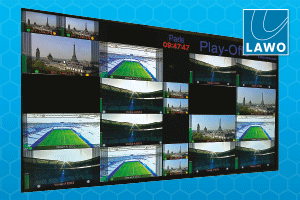The game topped YouTube Gaming's trending list and won the awards for Best Saudi Game and Best Arab Game.
Nvidia’s cutting-edge RTX platform is transforming the landscape of game development in the Middle East, with the Saudi indie horror title Aunt Fatima emerging as a standout example. Developed entirely by solo creator Abdullah Al Hamad, the first-person psychological horror game has captivated audiences with its eerie atmosphere and deep cultural roots, all powered by Nvidia’s advanced gaming technologies.
Aunt Fatima immerses players in a chilling journey through a traditional Saudi household reimagined as a psychological trap. The game’s narrative and visual design have propelled it to the top of YouTube Gaming’s trending list and earned it accolades for Best Saudi Game and Best Arab Game. Its success is particularly notable given that it was built in just six months by Al Hamad, who credits Nvidia’s RTX tools, especially DLSS, for enabling high performance and visual polish across a wide range of devices.
“I developed this game within six months. Even with that timeframe, I made sure that every puzzle, brick and horror element is thoughtfully designed,” said Abdullah Al Hamad. “As a gamer and content creator, I designed Aunt Fatima to provide a thrilling experience from start to finish. Thanks to DLSS, I was able to create a visually stunning game that runs smoothly across a wide range of systems.”
The game highlights several of Nvidia’s latest innovations, particularly those exclusive to the GeForce RTX 50 Series. DLSS 4 with Multi-Frame Generation enhances performance by intelligently rendering frames using AI, while Ray Reconstruction refines lighting and shadow realism. RTX Video Super Resolution ensures crisp, detailed visuals without overburdening the GPU.
Al Hamad’s journey into game development began with designing a simple game menu and quickly evolved into a full-scale project. His background in content creation gave him the storytelling and visual sensibilities needed to shape a compelling horror experience. He also undertook extensive field visits to traditional Saudi homes to authentically replicate environments, blending cultural textures with the game’s unsettling gameplay.
His creative process and the role Nvidia’s tools played in it were discussed in an exclusive interview with tech influencer Cambotar, offering deeper insights into the game’s evolution from concept to execution. The success of Aunt Fatima also led to Al Hamad’s invitation to Nvidia Studio Nights III in Riyadh, marking his debut within the MENA game development community. The positive response at the event affirmed the game’s regional impact, with techniques from the game now being taught in local game development academies.
“The reaction to the game at Studio Nights III was incredible,” he shared. “It opened doors I never expected. Now, the techniques I used in the game are being taught in game development academies in the region.”
Although no sequel to Aunt Fatima has been officially confirmed, Al Hamad hinted at new projects on the horizon, aimed at continuing to amplify Arab voices in the global gaming industry.














































































